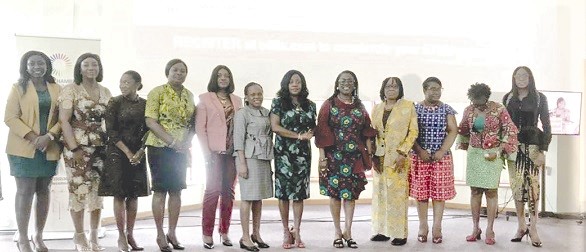
Initiative to promote girls’ participation in STEM launched
An initiative to fast-track the country’s development through the application of science, technology, engineering and mathematics (STEM) by females has been launched.
Dubbed: Seats for Ladies in STEM (S4LIS), it aims at increasing the percentage of females undertaking STEM-related jobs.
The programme was launched by the Ghana Chamber of Telecommunications (GCT), in collaboration with the Ministry of Communication and Digitalisation in Accra yesterday, on the theme: “Bridging the gender gap in Science, Technology, Engineering and Mathematics (STEM) in Ghana”.
Gender inequality
The Chairperson of the chamber, Patricia Obo-Nai, said gender inequality had gained much attention in both policy and academia.
She said that has had a massive effect on the country’s development.
Ms Obo-Nai, who is also the Chief Executive Officer of Vodafone Ghana, said gender inequality had put females at a disadvantaged position, curtailing their development and growth.
That, she said, was evident in the gender gap in many industries, including the telecommunication sector, adding that “the percentage of females graduating from tertiary education engineering fields is about 30 per cent for many sub-Saharan African countries”.
According to her, women constituted about 30 per cent of all tertiary students and 26 per cent of PhD graduates.
“Scientific work and technological innovation are missing the invaluable perspectives and critical contributions of our women,” she said.
Ms Obo-Nai further explained that it was as a result of the prevailing situation that the chambers established the S4LIS to help bridge the gender gap in the country.
“The initiative will impact the life of many young ladies and create opportunities for their children, businesses and the nation,” she added.
Ms Obo-Nai expressed appreciation to the government, corporate institutions and other stakeholders which had invested in girls’ education in the country over the years.
The Minister of Communication, Ursula Owusu-Ekuful, said the nation was gradually making progress in female education in STEM-related fields.
According to her, women were underrepresented in STEM education and careers due to entrenched cultural and traditional norms and the perception that STEM was a male domain because “boys and men are just better at it than girls”.
“There is a lot of pressure being put on women but such similar pressure is not being put on men to choose between a career, relationship and marriage,” she added.
For his part, the CEO of GCT, Dr Kenneth Ashigbey, said the objective of the initiative was to attain gender parity in the STEM ecosystem in the next five years by educating and driving girls towards information and communication technology programmes.
He said the initiative would also enable them to recruit more females into the STEM ecosystem for internship and national service postings.
